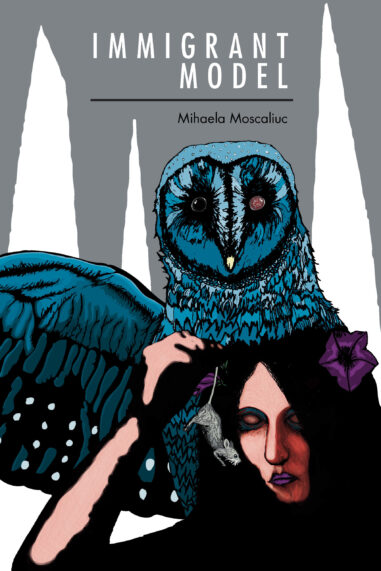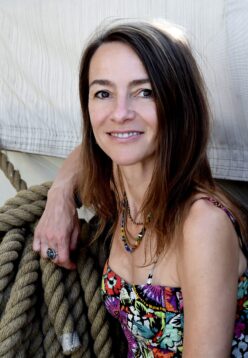
Paperback $20.00
Request Exam or Desk Copy. Request Review Copy
Immigrant Model
In her second outing, Moscaliuc ("Father Dirt") returns to her Romanian upbringing, looking as well at her parents' time in America and at the Eastern Europeans affected by Chernobyl. With melancholy verve she envisions sensuous details everywhere, at once 'sated and wild with thirst.' A beach vacation in Spain recalls 'a Romanian town wretchedly/ beautiful, bears nosing lamppost and ancient couples/ playing chess on benches painted in national colors.' Confused in Queens, N.Y., the poet's mother sleeps 'in a toddler cot,/ apron pockets lined with shriveled fruit words, jars of preserve/ ticking under the mattress like hand grenades.' Insistently international, Moscaliuc also touches on disputed works of Italian Renaissance art; the burial rituals of Madagascar; and the career of Han van Meegeren, who forged Vermeers. She has a way with the visible world—one poem remembers her own work as an artist's model—and renders smell, taste, and other sensory details remarkably well. Her often lengthy free verse lines keep coming back to her first homeland: its bloody, convulsive history; its Gypsy (Roma) minority; its fruits and vegetables. Moscaliuc uses the five senses as if she owned them, even when retelling horrors, as in the uneven Chernobyl poems: 'When I burned your clothes,/ petals of skin escaped into the gooseberry bush.'

